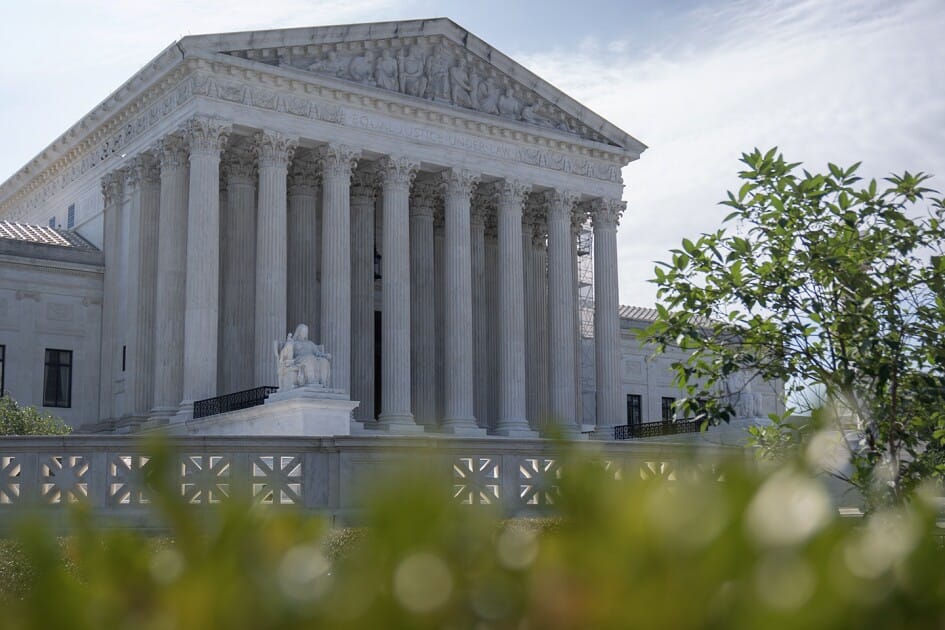The Biden administration moved swiftly on Monday to ask the U.S. Supreme Court to partially set aside two lower-court injunctions that block the Department of Education’s new Title IX regulation from taking effect in 10 states.
Just days after two federal appeals courts had refused to intervene in separate challenges, U.S. Solicitor General Elizabeth B. Prelogar asked the high court to allow most of the Title IX rule to take effect on Aug. 1 even as the administration went along with pausing the key provisions being challenged that are meant to clarify that the law bars discrimination based on gender identity and sexual orientation.
“The district court plainly erred in enjoining dozens of provisions that [states and other plaintiffs] have not challenged and that the court did not find likely unlawful,” Prelogar said in an emergency application to the high court in a case brought by Louisiana and three other states, along with several Louisiana school districts.
A federal district judge on June 13 issued an injunction blocking the entire new Title IX regulation in Louisiana, as well as Idaho, Mississippi, and Montana. The U.S. Court of Appeals for the 5th Circuit, in New Orleans, on July 17 denied the Biden administration’s request for a partial stay, by a 2-1 panel vote.
“The district court’s injunction would block the department from implementing dozens of provisions of an important rule effectuating Title IX, a vital civil rights law protecting millions of students against sex discrimination,” Prelogar said in her filing in U.S. Department of Education v. Louisiana.
She filed a nearly identical request for relief in Cardona v. Tennessee, a case in which a federal district judge on June 17 blocked the entire new Title IX rule in Tennessee, Indiana, Kentucky, Ohio, Virginia, and West Virginia. The U.S. Court of Appeals for the 6th Circuit, in Cincinnati, in its own 2-1 panel ruling on July 17, refused the administration’s request to partially set aside the injunction.
Title IX rule’s provisions on sexual harassment, pregnancy at risk of being blocked, solicitor general argues
Prelogar said in the filings that the lower courts had incorrectly blocked provisions on gender identity, but the administration was not seeking to set aside the injunctions with respect to the gender-identity language for now.
“Those provisions raise important issues that will be litigated on appeal and that may well require this court’s resolution in the ordinary course,” the solicitor general said.
But the lengthy new regulation also includes many other provisions not being challenged by the states, including on how schools and colleges should handle sexual harassment and providing new protections for pregnant students, Prelogar said.
The solicitor general emphasized in both filings that the Supreme Court itself had recently scaled back a sweeping preliminary injunction because it had “flouted the fundamental principle that equitable relief must not be more burdensome to the defendant than necessary to redress the plaintiff’s injuries.”
She was referring to Labrador v. Poe, in which the high court on April 15 set aside a federal district court injunction that had blocked an Idaho law that limits medical treatments for transgender children. The vote was 6-3 along the court’s traditional ideological lines, with several written opinions.
Prelogar quoted from a concurring opinion by Justice Neil M. Gorsuch that lower courts would be “wise to take heed” of a reminder about the limits of their equitable powers.
The filings in the Title IX cases came on the court’s emergency docket, so even though the justices are on their summer recess, they could ask the state and school district challengers to respond to the solicitor general and then could decide whether to grant the relief sought by the solicitor general.
2024-07-22 21:58:00
Source link

